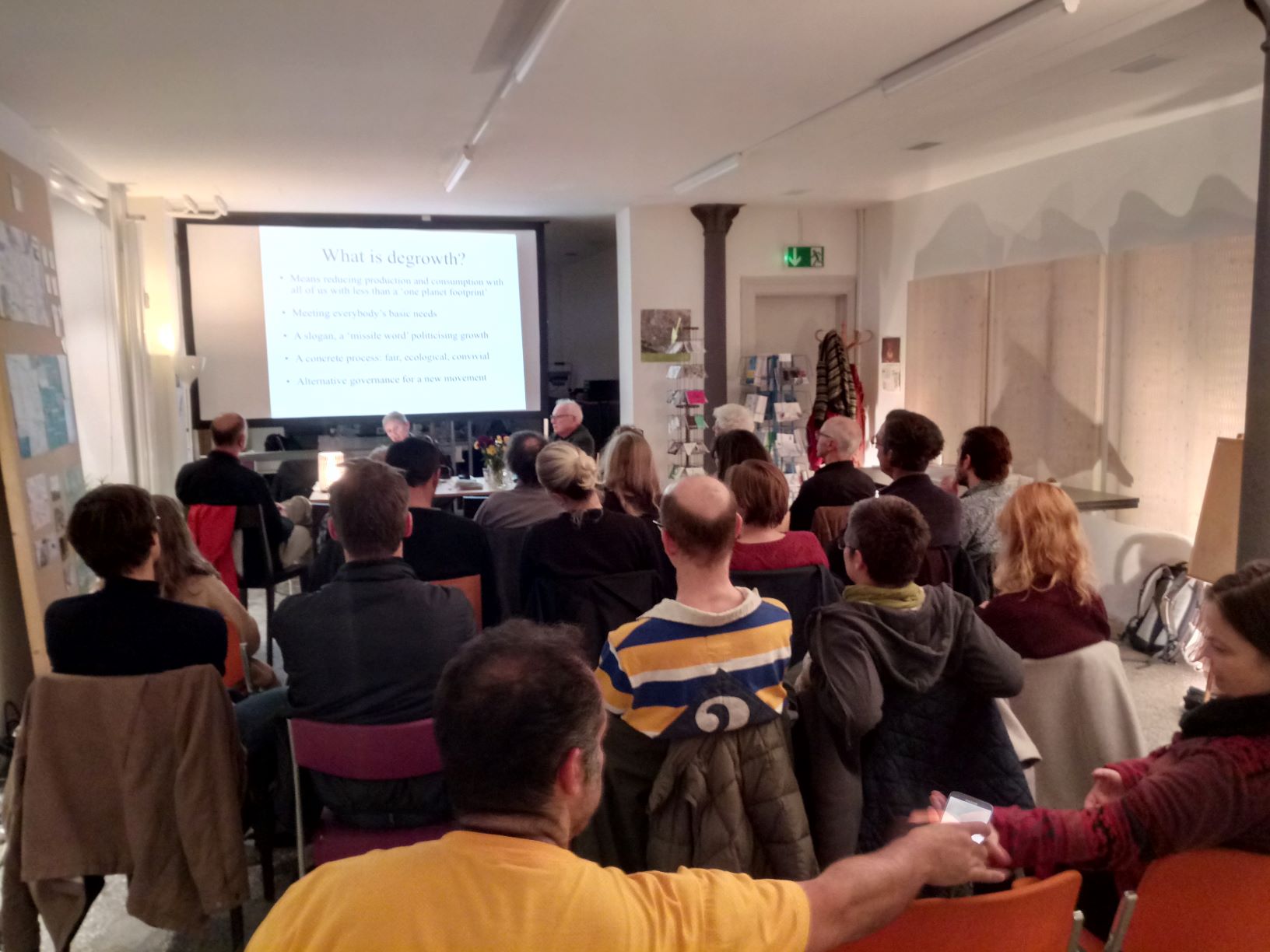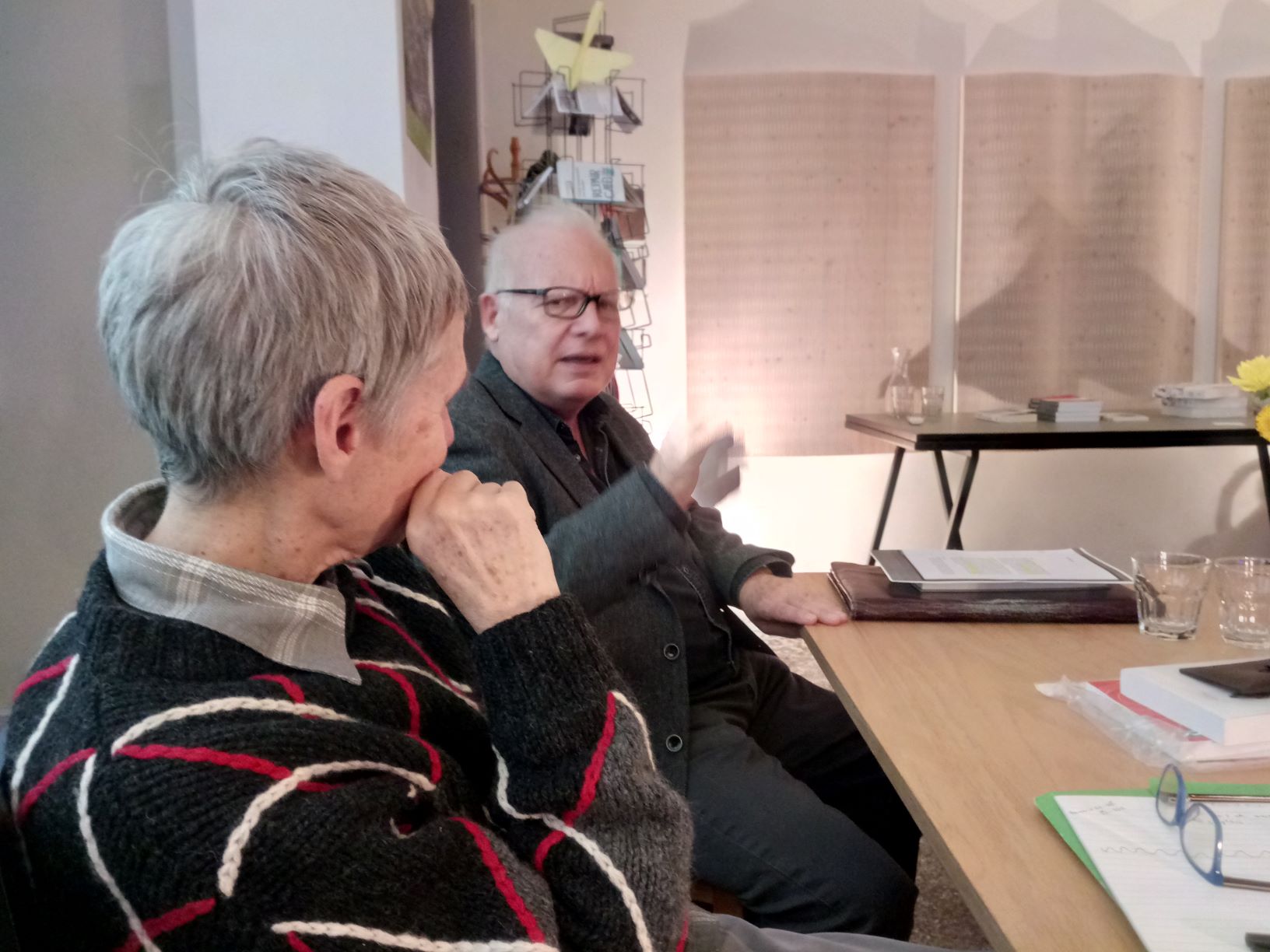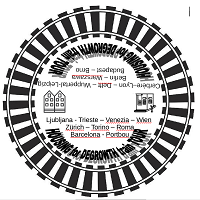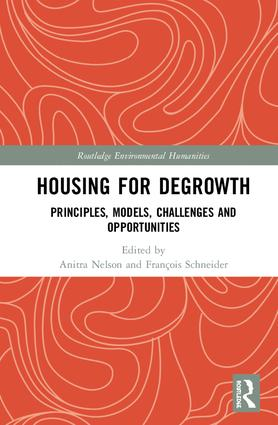It was amazing to meet Hans Widmer, the author of Bolo Bolo, in Zurich, as well many other inspiring publications, and initiator of many large housing project with the association Neustart Schweiz.
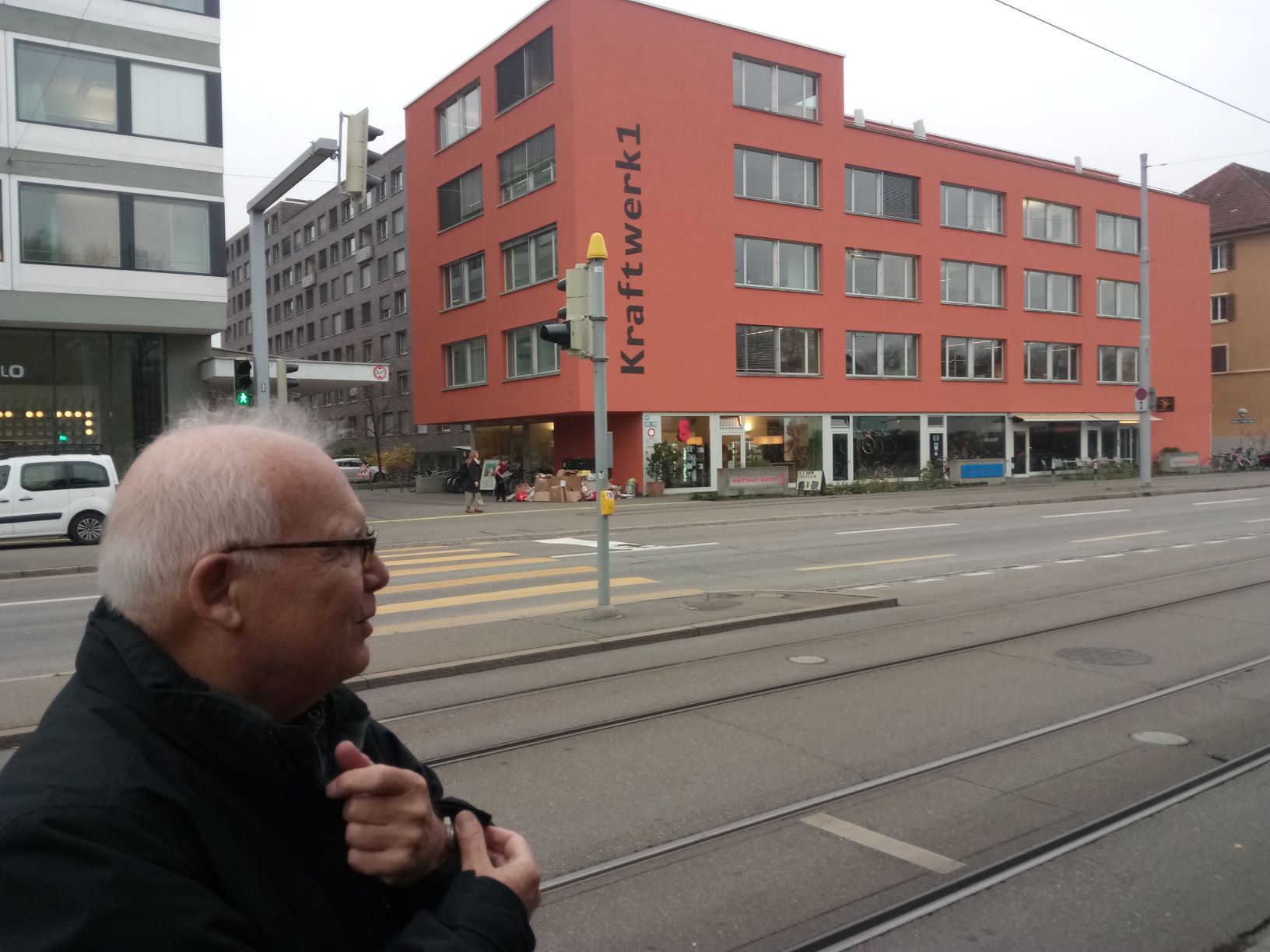
Hans Widmer developed a housing model, where neighborhoods ("bolos") are central. In his publications he describes a urban utopia in great details. You could say, "OK, this is very beautiful but it is not at all realistic".
But… the model has actually been implemented. We visited Kraftwerk1 and a few other projects. Ok the reality is not exactly like the model but as says Hans, « the reality proves that you are wrong, we have to differentiate between the map and the reality”.
There are some things that are just like the model. The Bolo city block look very similar to the drawing of Hans. Hans describes is his books the importance of being able to wander in pyjama in the Bolo and go to the microzentrum. Well indeed we saw people in pyjamas. We indeed stayed in one of these guestrooms as hospitality is an important value, beautiful. There is the DIY bar and the collective washing machine room. You have a space downstairs with independent small businesses: a restaurant, a bicycle workshop, hairdresser, a training center, a shop with lots of organic products, including vegetables from the cooperative.
And then above you have apartments that suits different preferences. Some are for singles, others for couples. There is a collective with 12 people in 14 rooms. There is a rule that you cannot have more than 2 rooms more than persons. And several collectives of different sizes. They have a piece of land linked to the Bolo.
A Swiss parking law, that obliges developers to have a certain number of parkings per inhabitants has been creating some problems to this carfree project: they had to invest in car parkings against their will... and then put stones on them to avoid having people parking on them. The good thing is that this law has now been abolished and the last car parks will become bicycle parking. Although Hans is a convinced pedestrian, and complains sometimes about bikes ;), it is nice to see that the cooperative is in fact full of bicycles.
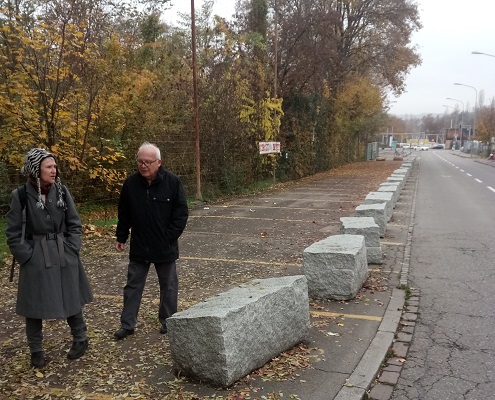
Newcomers, that become members of the community, can apply when a housing gets free. But the priority will be given to members that have interesting projects to offer to the cooperative. If you like to cook for the collective you have a good chance to be chosen. 40 % of inhabitants are non-Swiss. Some apartments are kept for people in economic difficulties and for refugees. This is really open-localism put in practice.
What are the differences with the initial project? Well first it is not as big as planned. Hans dreamed to have 500 people. There are « only » 250 people in Karftwerk 1.
The piece of land for agriculture is not 50 ha but 2 ha of intensive vegetable production. And the agricultural cooperative is independent from the housing cooperative. They had to adapt to the legislation that forbids housing cooperatives to do agriculture (this prevents large business cooperatives to develop their tentacles a bit too easily). Three professional farmers are hired full time. 2/3 of work is done by members. For a big bag of vegetables, suitable for 10 people, you need to work 20 « green beans », or say 10 days. Sometimes work is done collectively. This is the case for the digging which is a great binding collective moment. Last year, as was telling Hans, they had an African band playing as everybody digged together at the sound of the music.
There are also many more children than planned, around 80. The cooperative is full of children toys and children bicycles. « The people the most radical about not having children were the first to have children ». There is a kinder garten in the cooperative, but it is actually managed by the city. Most children go somewhere else, as they find good that children find their own way.
Interesting is the case of a terrain next to the cooperative, where the city had planned to build a gigantic stadium. The project has been rejected several times by some « votation » (vote), which offered the last 10 years a beautiful natural zone to give space for several tiny house, a small wagenburg and yurt, permaculture gardens, children play ground made by children. This space is a sort of paradise for all sorts of composting techniques. Even if the cooperative prefers the use of biogas, supposedly more ecological as it produces gas.
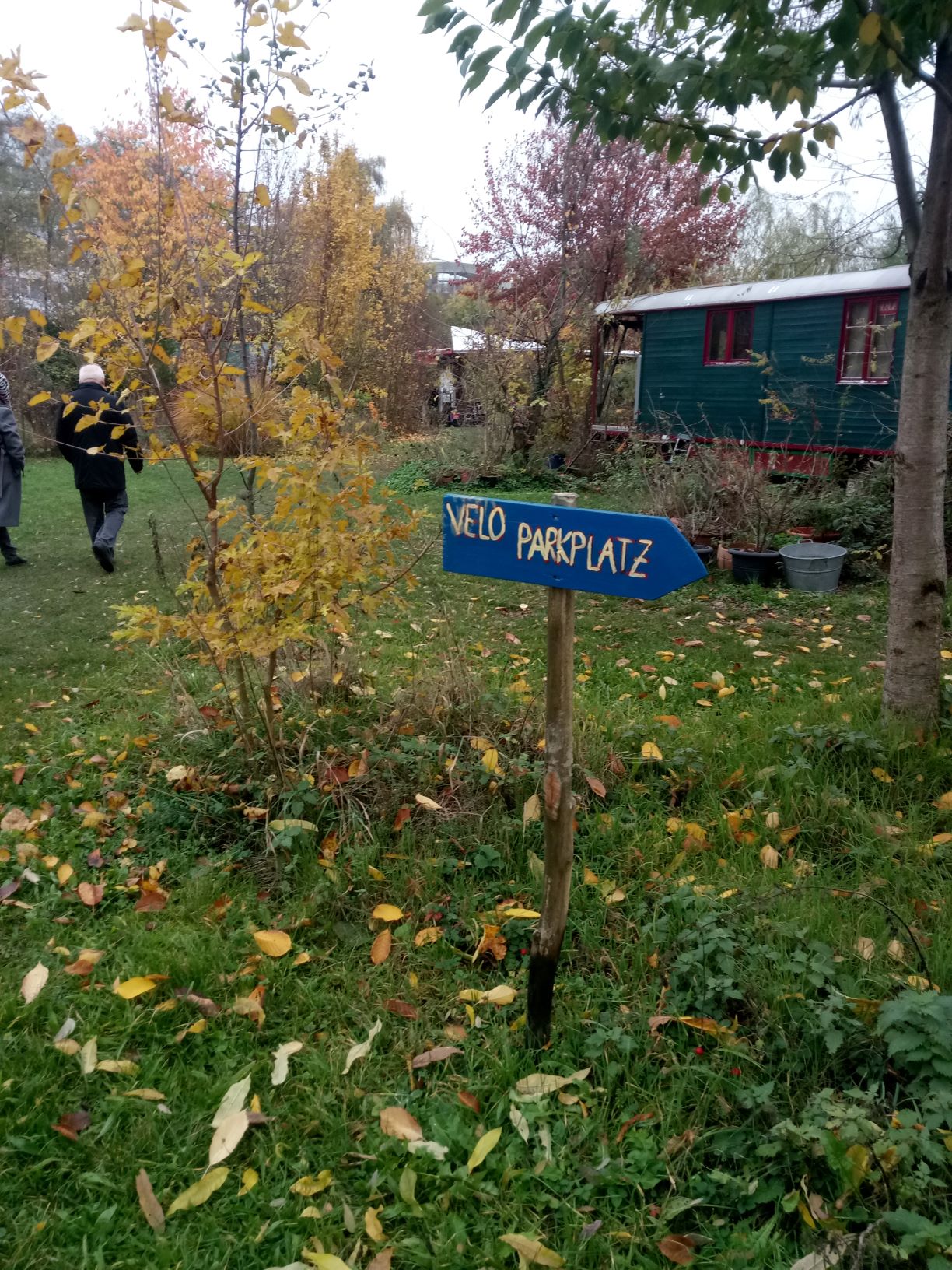
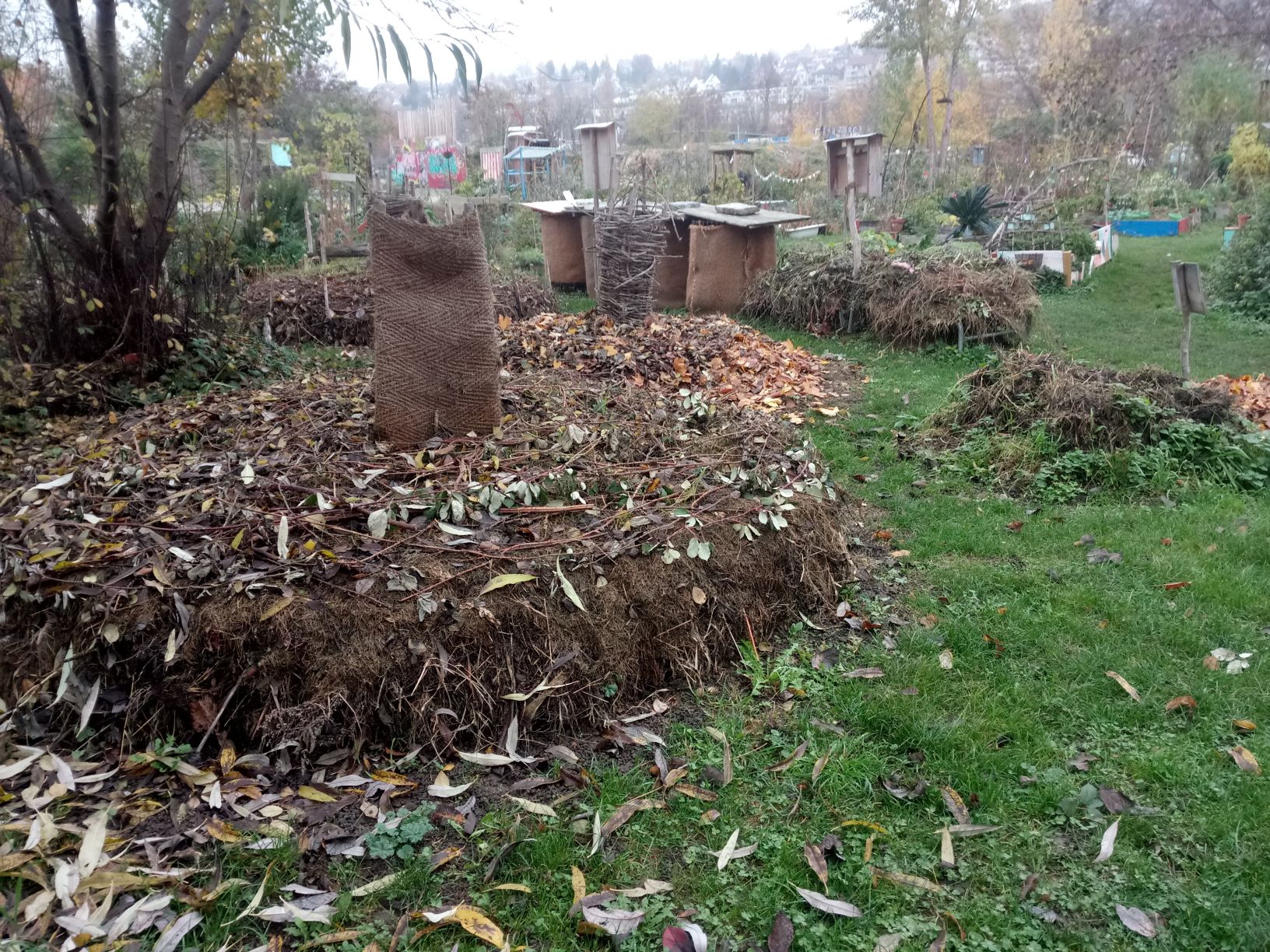
Books are shared, there is a collective library. There are common rooms for meetings that you can reach without putting your coat on.
We visited several cooperatives. One called Kalkbreite that was founded in 2014 above a tram station. You can look at trams from the restaurant though beautiful windows. Above the trams is the courtyard of the cooperative.
We also visited a cooperative build with renovation of existing old houses of an ancient block of the city centre. Obviously it is not possible, neither desirable to demolish and rebuild all existing buildings. Hans showed us a beautiful realisation in the centre of Zurich.
We had a beautiful event in L200 a central place for events, where researchers and all sorts of people involved in the cooperative took part. There were around 25 participants. There was a discussion if we should focus on tiny houses or on collective housing. In my opinion tiny houses cannot, and should not, become the standards. However they are part of the system of alternatives that we need to propose in front of growth/closure housing narratives. Tiny houses or collective housing, countryside alternatives or city ones can all be co-opted and perverted in the present growth system. This is fundamental to propose a new housing narratives, in the frame of degrowth, and get organized !
